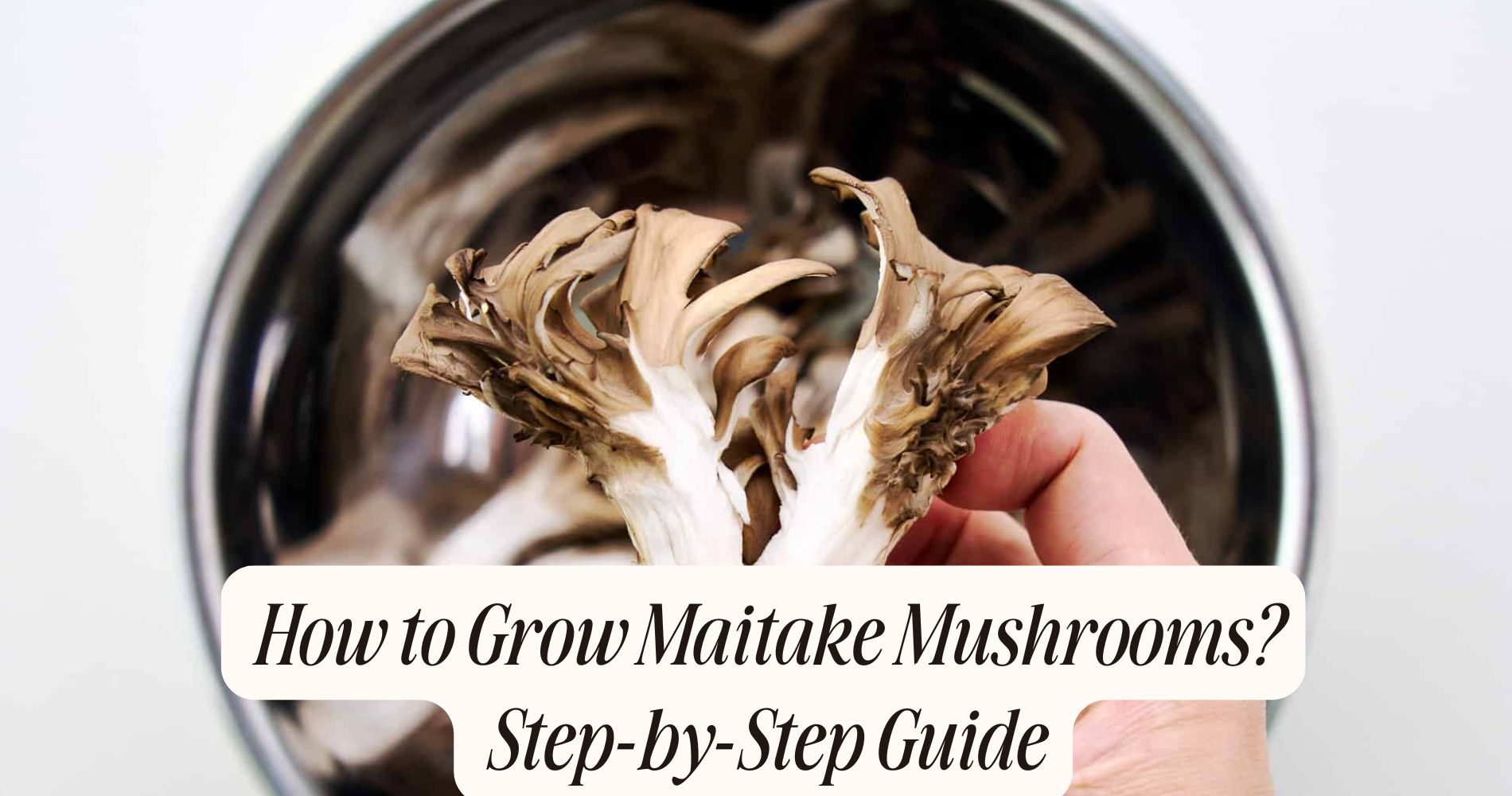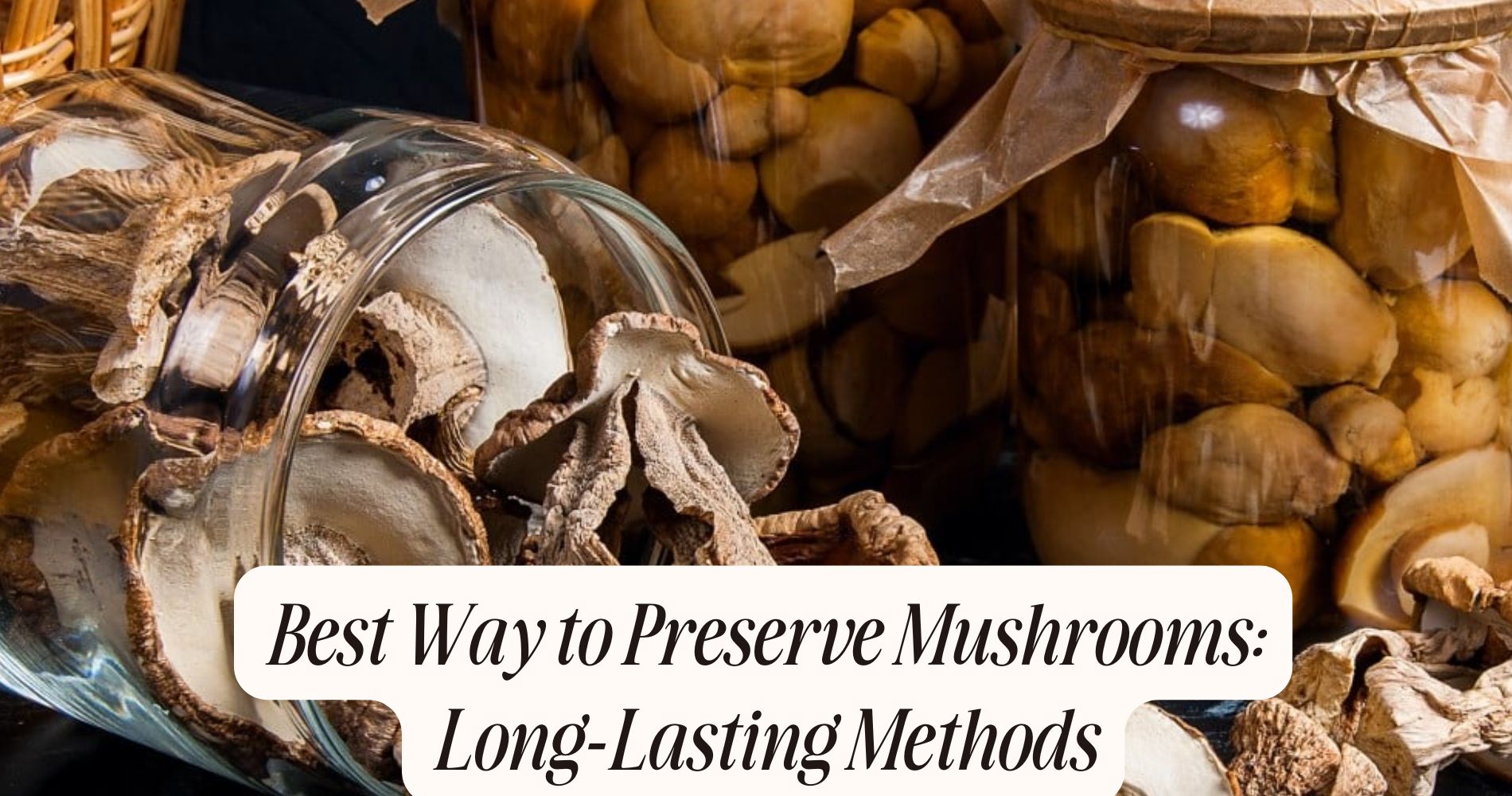
Side Effects Reishi Mushroom: What to Watch Out For
When considering reishi mushroom, it's important to be aware of the side effects reishi mushroom may cause. You could experience allergic reactions like itching or difficulty breathing, particularly if you're sensitive to mushrooms. Gastrointestinal issues such as nausea or an upset stomach are also possible. Reishi may impact blood sugar levels and could interact with medications, especially anticoagulants and hormonal treatments. Pay attention to how your body responds and consult a healthcare professional to ensure safe use. Discover more about managing these effects effectively.
Understanding Reishi Mushroom
Reishi mushroom, often dubbed the "mushroom of immortality," has been revered in traditional Chinese medicine for centuries.
You might be intrigued by its numerous health benefits and medicinal properties, which include enhancing immune function, reducing stress, and improving sleep quality.
Research shows that reishi contains bioactive compounds like triterpenes and polysaccharides that contribute to its therapeutic effects.

When you incorporate reishi into your wellness routine, you're tapping into a natural source of support for your overall health.
It's essential to recognize, however, that while many people enjoy its benefits, individual responses can vary.
Understanding reishi’s powerful properties allows you to make informed decisions about its use, ensuring you maximize its potential while being mindful of any side effects.
Common Benefits of Reishi
While exploring natural health remedies, you might discover that reishi mushroom offers a range of impressive benefits. The most notable of the Reishi benefits is its immune support, helping your body fend off illnesses.
Additionally, it’s known for stress relief, making it an excellent choice for those seeking calm. You may also experience sleep improvement, as reishi promotes better rest.
Some studies suggest its potential role in cancer prevention, thanks to its anti-inflammatory properties. Furthermore, reishi can contribute to heart health by improving circulation and reducing blood pressure.
Finally, it aids in liver detoxification, promoting overall wellness. Embracing reishi might just be the boost you need for a healthier lifestyle.
Potential Allergic Reactions
When considering Reishi mushroom, it’s important to be aware of potential allergic reactions.
Common symptoms like itching, rash, or difficulty breathing can occur, particularly if you have existing allergies to mushrooms or molds.
Understanding the risk factors and implementing prevention strategies can help you enjoy the benefits of Reishi safely.
Common Allergic Symptoms
If you’re considering adding Reishi mushroom to your wellness routine, it’s essential to be aware of potential allergic reactions.
While many people enjoy its benefits, some may experience common symptoms like skin rashes, itching, or hives. These reactions can occur soon after consumption, signaling your body’s sensitivity to the mushroom.
In rare cases, more severe allergic responses may involve swelling or difficulty breathing, which require immediate medical attention.
If you notice any signs of an allergic reaction, it’s vital to stop using Reishi and consult a healthcare professional.

Risk Factors Involved
Understanding the risk factors involved in potential allergic reactions to Reishi mushroom can help you make informed decisions about its use.
Conducting a thorough risk assessment is vital, especially if you have a history of mushroom allergies or sensitivities. It's important to recognize that individual responses can vary, so pay attention to your body’s reactions when trying Reishi for the first time.
Following usage guidelines can help minimize risks. Start with small doses to gauge your tolerance, and consult a healthcare professional if you have concerns.
Prevention Strategies Suggested
To minimize the risk of potential allergic reactions to Reishi mushroom, it’s essential to implement effective prevention strategies.
First, follow dosage guidelines strictly; starting with a low dose allows your body to adjust without overwhelming it. Gradually increase the amount if you don’t experience adverse effects. It’s also wise to consult with a healthcare provider, especially if you have known allergies or pre-existing conditions.
Additionally, pay attention to user testimonials; they can provide valuable insights into experiences with Reishi. If multiple users report allergic reactions, consider that information seriously.
Always observe your body’s response when introducing any new supplement, and discontinue use immediately if you notice any signs of an allergic reaction, such as rash or difficulty breathing.
Gastrointestinal Issues
When you start taking Reishi mushroom, you might experience gastrointestinal issues like nausea or an upset stomach.
Some users report diarrhea and bloating, which can be uncomfortable.
It's important to monitor your body’s reaction and consult a healthcare professional if these symptoms persist.
Nausea and Upset Stomach
While many people turn to reishi mushroom for its potential health benefits, some may experience nausea and upset stomach as side effects.
These gastrointestinal issues can arise due to various nausea triggers, including the mushroom's strong taste or your body's sensitivity to its compounds.
If you find yourself feeling queasy after taking reishi, consider using stomach remedies like ginger tea or peppermint to soothe your discomfort. Staying hydrated and eating light meals can also help.
It’s important to listen to your body—if nausea persists, you may want to adjust your dosage or consult a healthcare professional.
Understanding these side effects can make your experience with reishi mushroom more enjoyable and beneficial.
Diarrhea and Bloating Issues
Reishi mushroom can sometimes lead to uncomfortable gastrointestinal issues, such as diarrhea and bloating. If you’re experiencing digestive discomfort after taking this supplement, it might be your body’s way of reacting to its compounds.
Some people find that their gut health suffers, particularly when consuming high doses or if they've a sensitive stomach. This could disrupt your digestive system, leading to painful bloating or loose stools.
To minimize these effects, start with a lower dosage and gradually increase it as your body adjusts. Staying hydrated and maintaining a balanced diet can also help support your digestive system while using Reishi.
Always consult with a healthcare professional before making significant changes to your supplement routine to verify it’s right for you.
Effects on Blood Pressure
Although many people turn to Reishi mushroom for its potential health benefits, its effects on blood pressure can be complex.
Research suggests that Reishi may aid in blood pressure regulation, potentially benefiting those looking to support their cardiovascular health. Some studies indicate that the compounds in Reishi can help relax blood vessels, leading to improved circulation and lower blood pressure levels.
However, individual responses can vary. While some might experience positive effects, others may find their blood pressure fluctuating unexpectedly.
It’s crucial to monitor your body's reactions if you decide to incorporate Reishi into your routine. Always consult with a healthcare professional to verify it aligns with your health goals, especially if you have existing blood pressure concerns.

Interaction With Medications
When considering reishi mushroom, it’s essential to understand how it can interact with your medications.
Its blood-thinning effects might amplify the risks if you’re on anticoagulants, while its immune-modulating properties can interfere with immunosuppressants.
Additionally, hormonal interactions could pose risks if you're taking hormone-related medications, so always consult your healthcare provider before adding it to your routine.
Blood Thinning Effects
If you're considering adding Reishi mushroom to your wellness routine, it's important to be aware of its potential blood-thinning effects, especially if you're on medications that affect coagulation.
Reishi can interfere with blood clotting, which might enhance the effects of anticoagulants like warfarin or aspirin. This interaction could increase your risk of bleeding, particularly at higher dosages.
It’s essential to consult your healthcare provider before combining Reishi with any blood-thinning medications. They can help you determine appropriate dosage considerations to minimize risks while benefiting from Reishi’s properties.
Monitoring your health closely while using Reishi alongside these medications can guarantee safety and efficacy. Always prioritize open communication with your medical professional for the best outcomes.
Immune System Modulation
While considering the blood-thinning effects of Reishi mushroom, it’s also important to understand how it can modulate the immune system and interact with other medications.
Reishi is known for its ability to enhance your immune response, providing potential health benefits, especially for those with weakened immune systems.
However, if you're taking immunosuppressants or other medications that affect immune function, combining them with Reishi might lead to unforeseen consequences.
The mushroom could alter the effectiveness of these drugs, either boosting your immune system too much or interfering with the medication’s action.
Always consult a healthcare professional before adding Reishi to your regimen, ensuring you’re aware of any risks associated with your existing treatments.
Balancing these factors is essential for maintaining your health.
Hormonal Interaction Risks
Understanding the hormonal interaction risks associated with Reishi mushroom is crucial, especially for those on hormone-related medications. Reishi can influence hormonal fluctuations, potentially leading to unexpected side effects.
If you’re taking medications for conditions like thyroid disorders or hormonal imbalances, you might experience endocrine disruption when combining them with Reishi. This disruption could alter the effectiveness of your medications or intensify side effects, putting your health at risk.
Always consult your healthcare provider before adding Reishi to your routine, since they can help you navigate these hormonal interactions. By being aware of these risks, you can make informed decisions about your health and guarantee that any supplement you take complements your existing treatment plan safely.
Impact on Blood Sugar Levels
As you explore the health benefits of Reishi mushroom, it’s vital to evaluate its potential impact on blood sugar levels.
Research suggests that Reishi may enhance insulin sensitivity, which can be particularly beneficial for individuals managing diabetes or prediabetes. By improving how your body responds to insulin, this mushroom could help regulate blood sugar more effectively.
However, if you’re on medication for diabetes, it’s important to monitor your blood sugar closely, as combining Reishi with certain medications might lead to hypoglycemia.
Always consult with a healthcare professional before adding Reishi to your routine, especially if you have underlying health conditions.
Understanding these effects guarantees you can harness the benefits while minimizing risks.

Hormonal Effects
Reishi mushroom’s benefits extend beyond blood sugar regulation, reaching into the domain of hormonal effects as well.
This adaptogenic fungus may help promote endocrine balance, potentially stabilizing hormonal fluctuations in your body. Some research suggests that reishi can influence cortisol levels, which play a vital role in managing stress and regulating various bodily functions.
If you’re dealing with hormonal imbalances, incorporating reishi into your routine might offer some support.
However, it’s essential to consult with a healthcare professional before starting any new supplement, especially if you’re on medication or have existing health conditions.
Potential Toxicity Concerns
While many people seek the benefits of reishi mushroom, it's important to contemplate potential toxicity concerns that may arise from its use.
Research indicates that reishi has varying toxicity levels, especially with long-term consumption. Some studies suggest that excessive intake could lead to adverse effects, such as liver toxicity or gastrointestinal issues.
You should be cautious, particularly if you're using concentrated extracts or supplements. Always pay attention to how your body reacts after consumption. Monitoring your dosage and duration of use can help mitigate risks.
If you're considering reishi as a regular supplement, it’s wise to consult a healthcare professional to guarantee it aligns with your health goals and to discuss any potential long-term effects.
Recommendations for Safe Use
To guarantee a safe experience with reishi mushroom, it’s important to follow specific guidelines that can help minimize risks.
First, always adhere to the recommended safe dosage, typically between 1 to 2.5 grams daily for dried mushroom extracts. It's wise to start with a lower dose and gradually increase it to monitor your body’s response.
Additionally, consult with a healthcare professional before starting, especially if you’re pregnant, nursing, or on medication.
Keep an eye out for any side effects, and discontinue use if you experience adverse reactions.
Finally, choose high-quality products from reputable sources to guarantee safety and efficacy.
Following these user guidelines will help you enjoy the potential benefits of reishi while minimizing risks.
Support Your Wellness with SUPER MUSHROOM GUMMIES
Looking for a convenient and delicious way to enjoy the benefits of mushrooms? Well Gummies' SUPER MUSHROOM GUMMIES are the perfect option! With 10 powerful functional mushrooms, these vegan gummies naturally fuel your brain, enhance focus, and support immune health. Packed with a fresh wild berry flavor, they taste as delightful as your favorite candy—without the jitters or crash. Energize your body and keep your mind clear all day long with SUPER MUSHROOM GUMMIES!
Frequently Asked Questions
Can Reishi Mushrooms Cause Skin Irritation or Rashes?
Reishi mushrooms can cause skin reactions in some individuals. If you notice any allergy symptoms like rashes or irritation after use, it’s best to discontinue use and consult a healthcare professional for advice.
Are There Any Long-Term Effects of Reishi Mushroom Consumption?
While research on long-term health effects of reishi mushroom is limited, it’s essential to adhere to dosage recommendations. Overconsumption might lead to potential issues, so moderation is key for safe, sustained use.
Is Reishi Mushroom Safe for Pregnant or Breastfeeding Women?
You should exercise caution with reishi mushroom during pregnancy and breastfeeding. Research indicates it’s best to consult a healthcare provider for personalized advice, as pregnancy precautions and breastfeeding guidelines often recommend avoiding certain supplements for safety.
How Does Reishi Mushroom Affect Sleep Quality?
Reishi mushroom may enhance sleep quality by promoting relaxation and reducing anxiety. Many users report insomnia relief, allowing for deeper, more restorative sleep. Incorporating it into your routine could improve your overall sleep experience considerably.
Can Children Safely Consume Reishi Mushrooms?
You should consult a pediatrician before giving reishi mushrooms to your child. While some studies suggest potential benefits, appropriate child dosage and pediatric safety need careful consideration to avoid any adverse effects.
Conclusion
In summary, while reishi mushroom offers various health benefits, it’s essential to be aware of potential side effects. Keep an eye out for allergic reactions, gastrointestinal discomfort, and effects on blood pressure and blood sugar levels. If you have hormonal concerns or underlying health issues, consult your healthcare provider before incorporating reishi into your routine. By staying informed and practicing safe use, you can enjoy the advantages of this powerful fungus while minimizing risks.




